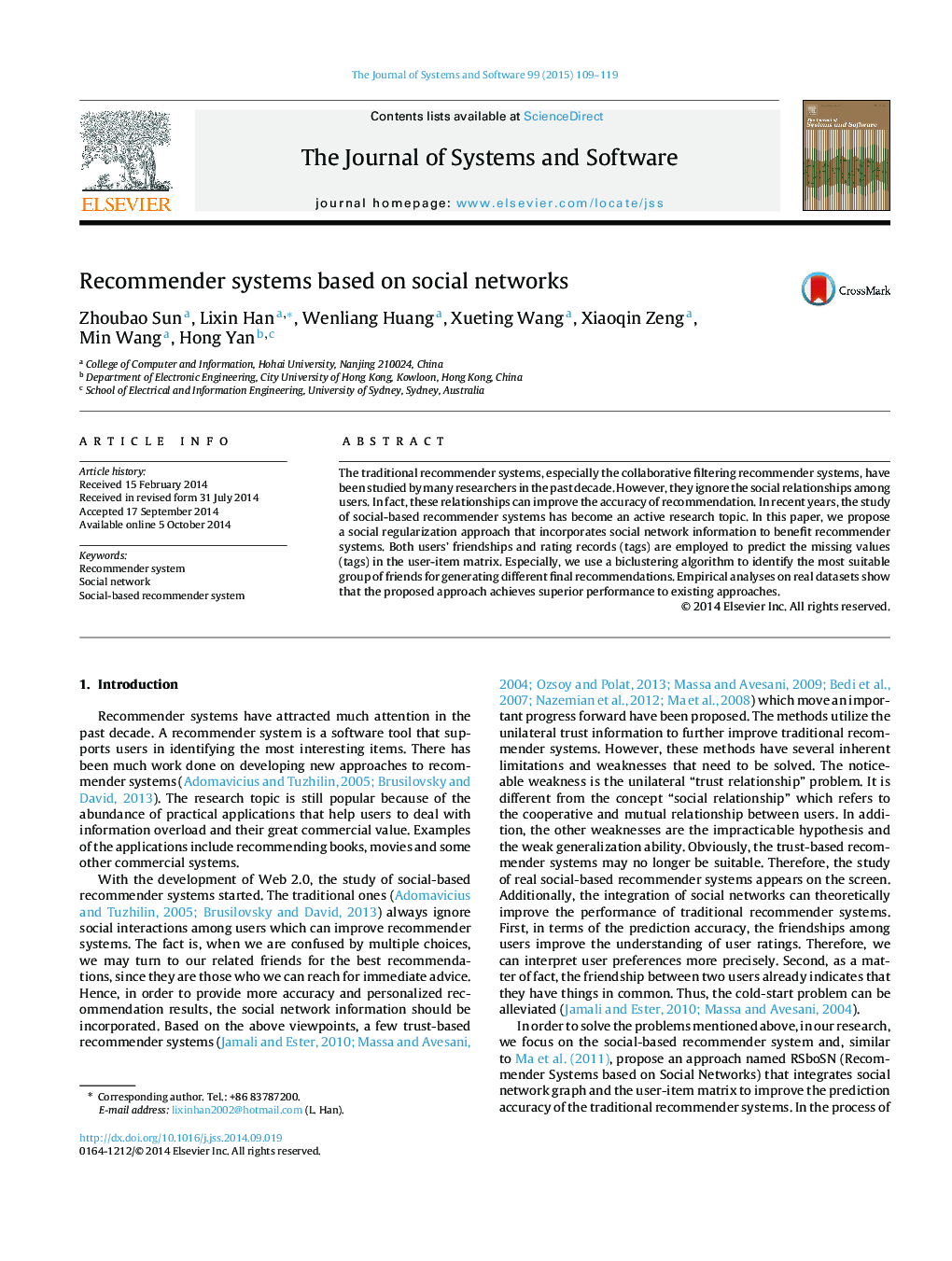| Article ID | Journal | Published Year | Pages | File Type |
|---|---|---|---|---|
| 461040 | Journal of Systems and Software | 2015 | 11 Pages |
•We propose a regularization approach that incorporates social network information.•Biclustering algorithm is used to calculate the number of realistic friends.•The friendships are used to calculate the similarities between users.•The correlation between user and item is taken into consideration.•We examine the impacts of parameters to the experimental results.
The traditional recommender systems, especially the collaborative filtering recommender systems, have been studied by many researchers in the past decade. However, they ignore the social relationships among users. In fact, these relationships can improve the accuracy of recommendation. In recent years, the study of social-based recommender systems has become an active research topic. In this paper, we propose a social regularization approach that incorporates social network information to benefit recommender systems. Both users’ friendships and rating records (tags) are employed to predict the missing values (tags) in the user-item matrix. Especially, we use a biclustering algorithm to identify the most suitable group of friends for generating different final recommendations. Empirical analyses on real datasets show that the proposed approach achieves superior performance to existing approaches.
